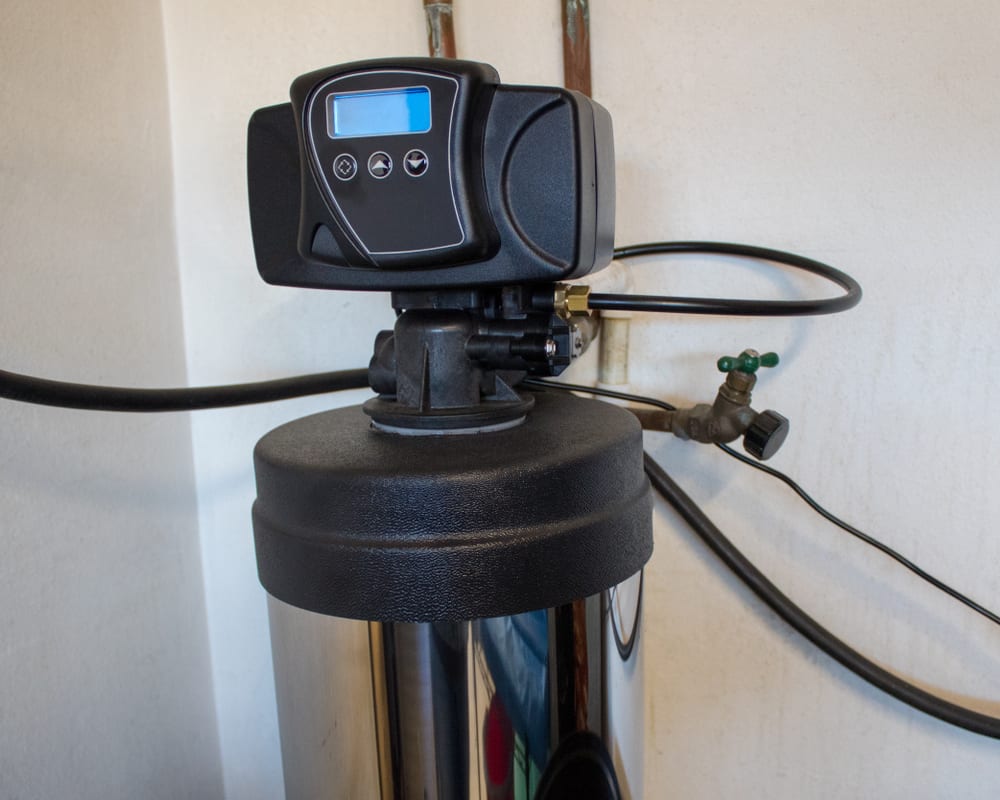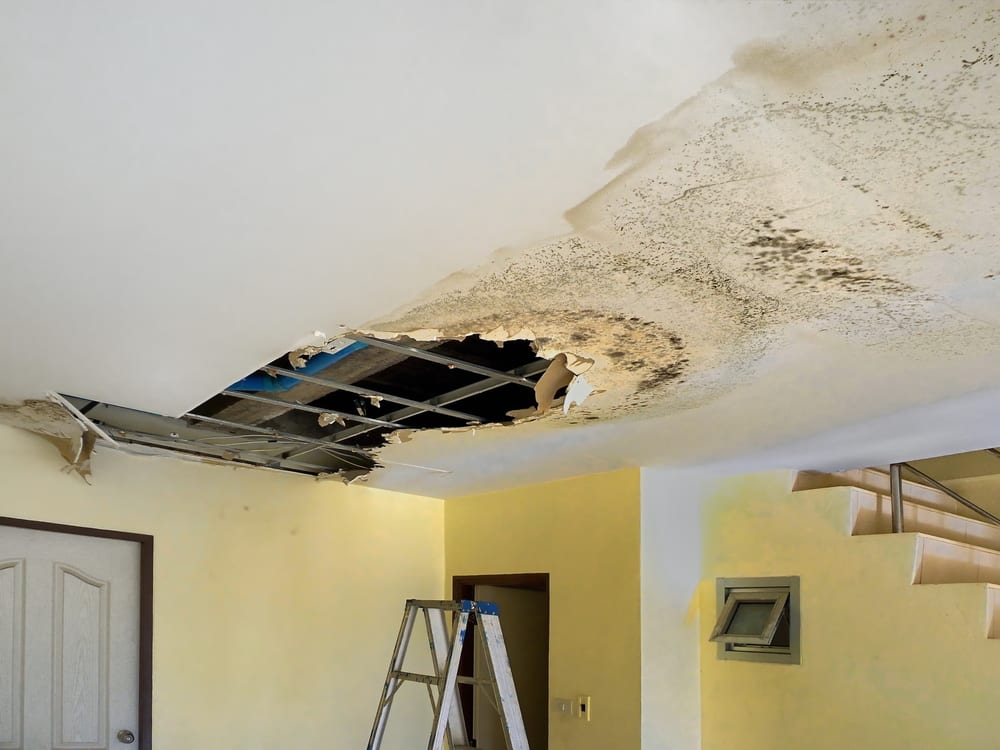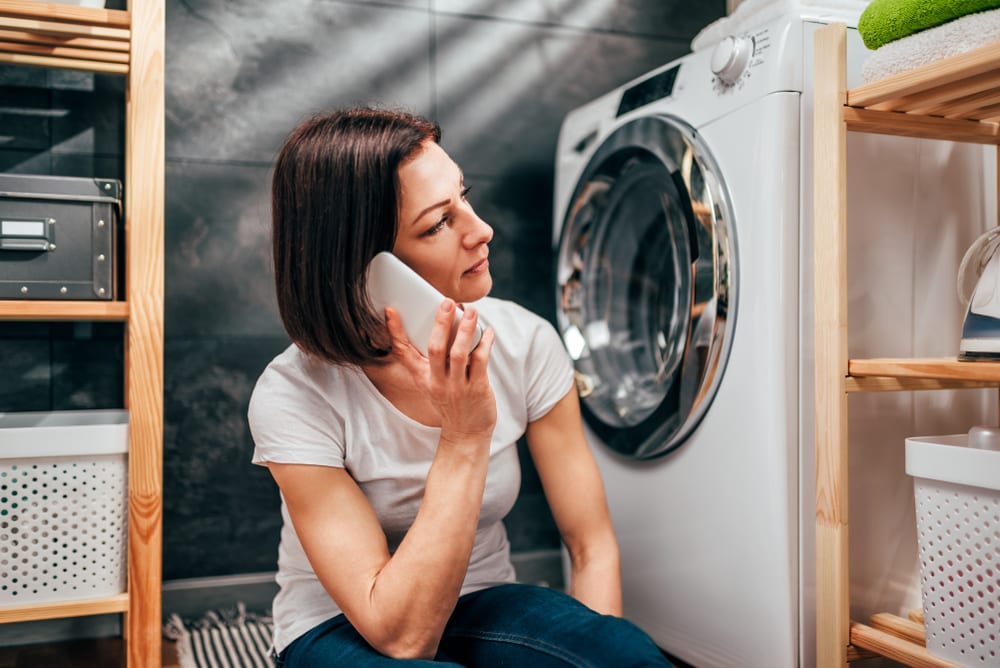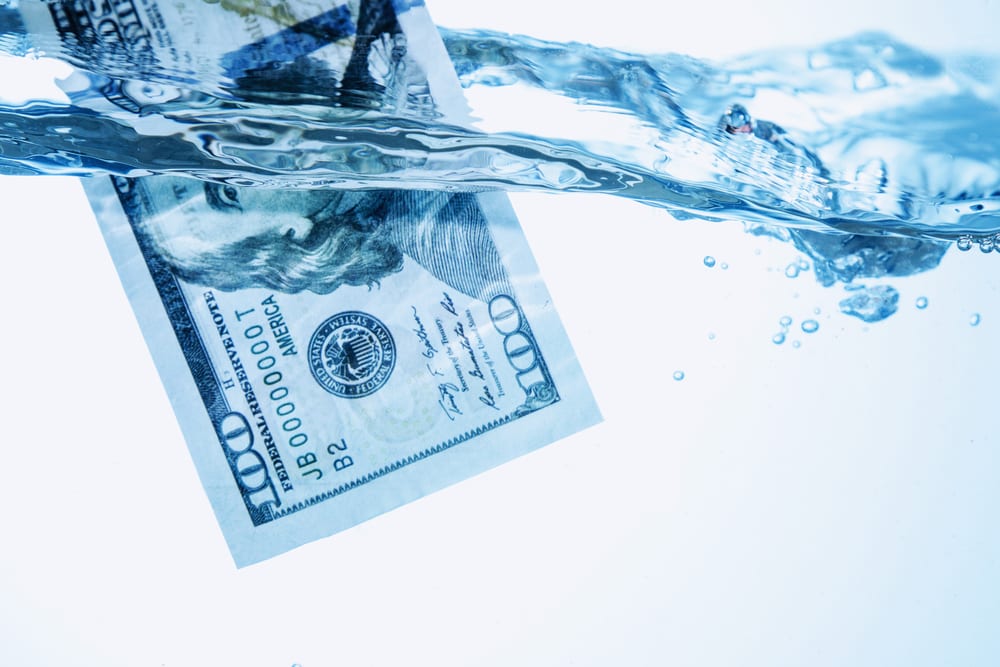
Hard water is a common problem for many people due to the high mineral content in groundwater. The higher the level of calcium in your water, the more problems you may have because of it. Installing a water softener system in your home is the best way to deal with hard water and its unpleasant consequences. To help you determine if you need a water softener, we have compiled a list of the signs of hard water and the devastating effects it can have on your plumbing system.
Table of Contents
Signs You Have Hard Water in Your Home
1.) Scratchy & Faded Clothes
If your laundry never looks clean or bright, you likely need a water softener in your home. Do you notice damage to your clothes, bedding, or towels? This is a sign your clothes are reacting to the minerals in your hard water. In addition, the majority of laundry detergents do not work well in hard water. Softening the water in your home will help save your clothes and other washables from an early death.
2.) Poor Tasting Tap Water
If the water in your home smells or tastes weird, this is a common sign of hard water. You will need to install a water softener to remove the excess calcium and magnesium from your water to make your tap water drinkable again.
 3.) Frequent Plumbing Repairs
3.) Frequent Plumbing Repairs
Another way to tell if you have hard water in your home is the total number of professional plumbing repairs you are required to perform on an annual basis. Hard water is directly responsible for mineral buildup within your pipes and plumbing fixtures.
A common sign that may indicate you need a water softener is low water pressure in your house. This issue is caused by a buildup of minerals from the hard water in your pipes. Investing in a water softener system will reduce the total number of clogs in your bathroom, kitchen, or basement.
Tips & Insights: Types of Tankless Water Heater Problems & Troubleshooting Methods
4.) Excess Limescale in Your Pipes
Steel pipes are not designed to withstand the harsh minerals in hard water. As the water is distributed to the fixtures in your house, limescale will start to form in your pipes. This will cause the water pressure in your pipes to decrease because the water will need to flow around obstructions in your pipes. In addition, a buildup of sediment can lead to the formation of a water leak behind your walls or near appliances.
Once the limescale starts to collect in your pipe valves, the connections between the valves will become loose. If the pipe valves become too loose, you may encounter a water leak near the connections in your dishwasher or washing machine. If you notice low water pressure or a water leak in your home, this is a sign you need to purchase a water softener. Investing in a water softener will help increase the lifespan of your water heater, washing machine, and other appliances.
 5.) Frequent Repair and Replacement of Appliances
5.) Frequent Repair and Replacement of Appliances
If you have broken or inefficient appliances, this is a sign the hard water in your pipes is causing damage to your dishwasher, washing machine, or humidifier. The excess minerals in hard water wills shorten the lifespan of your fixtures and hardware.
The minerals in the water accumulate and corrode the parts within these machines. You will need a water softener to prevent damage from mineral deposits to your appliances. This will also save you money that you would have to pay in appliance repairs and replacements.
6.) Spending Too Much Time Cleaning
If you’re spending an excessive amount of time cleaning mineral buildup on your shower doors, bathtubs, toilets, or faucets, you need a water softener to help you combat the grime produced by hard water. This type of water system will help you decrease the amount of time you spend cleaning each day.
You will need to invest in a water softener to prevent water spots and mineral buildup while also improving how your cleaners work. Eliminating the signs of hard water will save you time and money by ensuring that you use less cleaners and less water. Installing a water softening system in your home will usually pay for itself in about two years because you will:
- Spend less money on plumbing and appliance repairs
- Use less soap, shampoo, laundry detergent and other cleaners
- Suffer from less skin dryness/irritation
- Purchase less bottled water because you will be able to comfortably drink your tap water
4 Myths About Water Softeners
 Soft Water Has Less Healthy Minerals
Soft Water Has Less Healthy Minerals
Water softeners do not remove healthy minerals from the tap water. Although it’s true the human body receives nutrients from magnesium and calcium, the cells in your body are unable to absorb the nutrients from the inorganic mineral deposits in your hard water. The body is not designed to transform inorganic minerals into an organic form.
While it may be healthy to digest calcium and magnesium in food, the body cannot extract the nutrients from these two types of minerals when they are in an inorganic form. If you need a water softener in your home, you do not need to be worried about the removal of healthy minerals in the water. Since your body is not able to digest the nutrients in hard water, there are no negative consequences with removing minerals from hard water.
Water Softeners Add a Large Amount of Salt to Your Water
A water softener system utilizes an ion exchange process to extract excess minerals such as magnesium and calcium from your water. As the water enters the water softener, it is circulated to a water tank that is filled with media. Once the water is flushed through the media, the minerals are swapped with the sodium ion particles to create soft water.
Tips & Insights: Top Reasons Your Air Conditioner Is Not Cooling Your Home
While a large number of homes would benefit from a water softener, many homeowners choose to live with hard water because they believe water softeners add salt to water. This is an understandable assumption because a water softener system is filled with salt tablets that are designed to remove minerals from the water. This is a myth that is spread by individuals that are unfamiliar with water treatment systems. A water softener system is engineered to add sodium (Na) to your water. On the other hand, it does not add salt (NaCl) to the water in your house.
 Water Softeners Use an Excess Amount of Water
Water Softeners Use an Excess Amount of Water
There are various myths that lead people to believe water softener systems consume an excessive amount of water during the regeneration process. While it’s true that a large number of water softeners utilize an absorbent amount of water, the latest water softener systems for sale on the market are designed to learn your water consumption habits and modify the amount of water utilized for regeneration.
Soft Water Leaves a Layer of Soap on Your Skin
Are you choosing not to get a water softener because you have been told that soft water cannot remove soap from the skin? A large amount of homeowners that switch to a water softener complain about a greasy or slimy sensation when they wash their hands or take a shower. In fact, some people believe the slippery sensation is caused by a thin layer of soap that is being left behind on the skin.
Although this sensation can lead you to believe there is soap on your skin when you exit the shower, the greasy sensation is caused by essential oils in your skin. The smooth feeling of bathing in soft water is a sign that the water is removing excess soap residue on your skin. When you install a water softener, you can rest assured that your skin is clean and healthy.
If you find that you are in need a new water softener, let Bill Fenwick be your go-to guys. We offer water softener repair and installation services in Jacksonville and other areas of Florida. In addition, we offer other types of emergency plumbing repair services for malfunctioning water heaters, cracked water pipes, inefficient sump pumps, and clogged drains. Schedule an appointment with our team to receive assistance.

